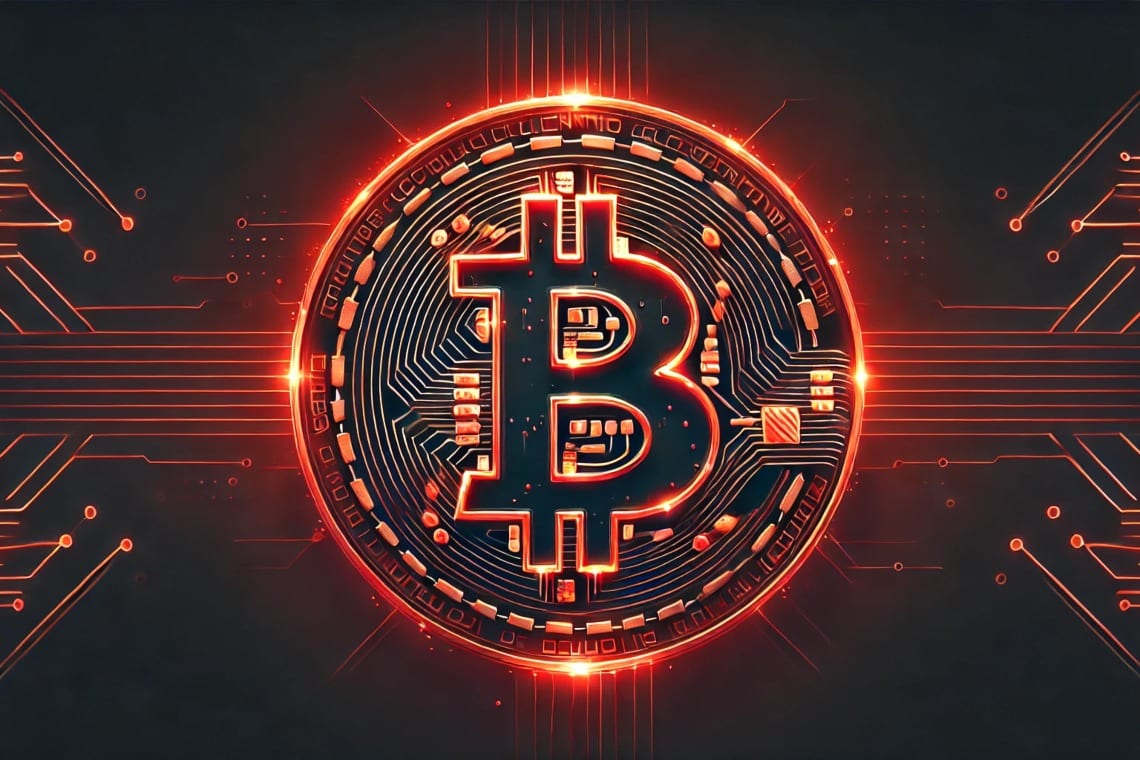The U.S. senator Cynthia Lummis lately proposed promoting half of the Federal Reserve’s (Fed) gold reserves to buy Bitcoin, seeing the cryptocurrency instead with nice development prospects and safety.
Let’s see all the particulars on this article.
Bitcoin: the “new gold” that would revolutionize the Fed’s reserves
According to what reported by Bloomberg, U.S. Senator Cynthia Lummis is selling a daring proposal: promoting a portion of the Federal Reserve’s (Fed) gold reserves to make investments the proceeds in Bitcoin.
This concept displays a imaginative and prescient more and more shared amongst lovers of criptovalute and a few political leaders, in accordance to which Bitcoin represents the future of secure havens, regularly supplanting the position that gold has historically occupied.
Lummis defined that, though gold has been a staple of safe-haven property for hundreds of years, the world monetary panorama is altering quickly, stating the following:
“Bitcoin, often referred to as ‘digital gold’, is attracting a growing number of investors thanks to its growth potential and the security it offers.”
According to her, the adoption of cryptocurrency by giant establishments and its rising integration into monetary markets reveal that Bitcoin can play a strategic position in nationwide reserves.
The proposal of Senator Cynthia Lummis is subsequently based mostly on a world pattern. Not surprisingly, the curiosity in cryptocurrencies has elevated exponentially lately, pushed by their skill to stand up to inflation and their safety based mostly on blockchain.
However, the senator additionally acknowledged the dangers related to this class of unstable property.
According to Lummis, diversifying the nation’s reserves by investing in Bitcoin doesn’t imply utterly abandoning gold, however making a stability that would supply benefits each in the brief and long run.
Advantages and modifications with Bitcoin
The analysts instantly questioned the feasibility and implications of such a proposal.
The Federal Reserve at the moment holds billions of {dollars} in gold reserves, thought-about a safety in opposition to financial fluctuations and forex crises.
The sale of these reserves to buy Bitcoin would contain a radical change in the administration of the nation’s assets, exposing it to new market dynamics and to a volatility that gold doesn’t current.
On the different hand, the supporters of Lummis’s proposal emphasize that Bitcoin has demonstrated outstanding resilience, overcoming regulatory challenges and intervals of bear market to get better strongly.
In their view, the adoption of Bitcoin as half of the nationwide reserves would ship a transparent message. Namely, that the United States is prepared to innovate and lead the change in direction of a digital financial system.
Furthermore, some consultants spotlight that the shortage of Bitcoin, fastened at 21 million models, may supply an even larger safety in opposition to inflation in contrast to gold, whose worth additionally depends upon extraction insurance policies.
Some critics of the proposal, nevertheless, warn in opposition to extreme enthusiasm for cryptocurrencies.
They certainly recall latest episodes of excessive volatility and the danger of lack of centralized management, elements that would injury nationwide monetary stability.
Furthermore, the safety provided by the blockchain, though stable, is just not immune to technological assaults or worldwide regulation points.
In conclusion, the proposal by Senator Lummis has sparked a debate on how the Federal Reserve ought to adapt to a quickly altering world.
If Bitcoin actually manages to earn a spot amongst nationwide reserves, it may mark the starting of a new period for the American financial system and for the position of digital cash in the world monetary system.
It stays to be seen whether or not this daring imaginative and prescient will discover consensus amongst legislators and in additional conventional monetary establishments.









